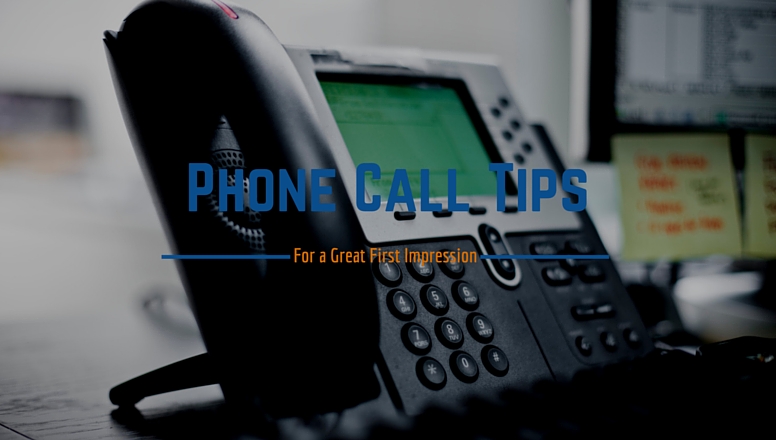You’ve just gotten a lead and it’s time to make that all important first phone call. If you want to make the best first impression, keep these tips in mind.
 Smile and stand or sit up straight when you are talking.
Smile and stand or sit up straight when you are talking.
People who have good posture tend to come across more enthusiastic than those who don’t. Talking with a smile changes the tone in your voice and provides reassurance to the listener. It’s amazing how a smile comes through over the phone.
Have patience and be ready to listen.
Give your listener time to adjust to your voice before starting the ‘sales’ pitch. Also try and speak at the same pace as your listener. You’ll get a better response from them if you speed up or slow down based on how they speak. Resist the urge to dominate the conversation and remember that a great sales pitch is only as good as the time you spend hearing the other person out. Hold your thoughts until there’s a natural break in the conversation. Just because you’ve asked all your questions doesn’t mean the other person has asked all of his.
Show the caller you care about THEM, not just the sale by asking questions.
If you can get a caller responding to questions, the call will likely continue. Jot down important personal information that may come up in the call. Perhaps it’s the number of children they have or their wife’s name. Then the next time you speak to them, you will have some valuable personal information that lets them know you were truly listening.
Have confidence.
When a lead answers the phone, do not ask if it’s a good time to talk, this gives them a perfect excuse to end the call. Be comfortable sharing your views and know specifically what you want to accomplish on each and every call. Don’t fear objections. Keep in mind that an objection is a request in disguise for more information. Know that rejection is a statistic and not a personal attack.
 Do not allow yourself to be distracted by other activities while speaking on the phone.
Do not allow yourself to be distracted by other activities while speaking on the phone.
Show your caller they have your full attention. Avoid activities such as rustling papers, chewing and eating, working on the computer, or speaking with someone else.
When you end a conversation, always summarize it in the same way you would end a live meeting.
Give a verbal sign the call is ending and make sure everything has been covered. In doing so, you can prevent misinterpretation of your discussion. Before hanging up, tell them when you will be calling them back. Give them a specific date and time and set the next contact date in your calendar.
With these phone tips and a CRM that can help you keep track of your lead’s next steps, you are sure to make a great impression.
To learn more about IFPG’s Franchise Sales CRM click here: https://www.franchisesalescrm.com/ or call 1-888-977-4374 x108


